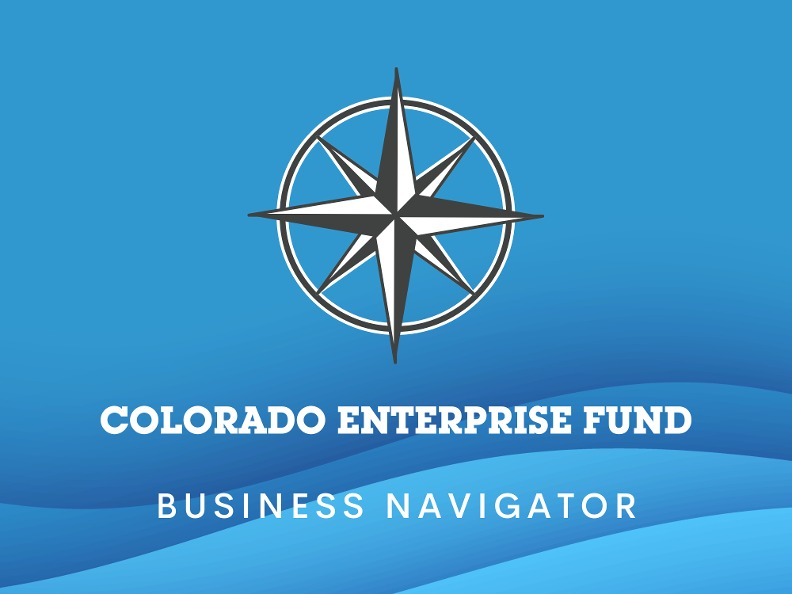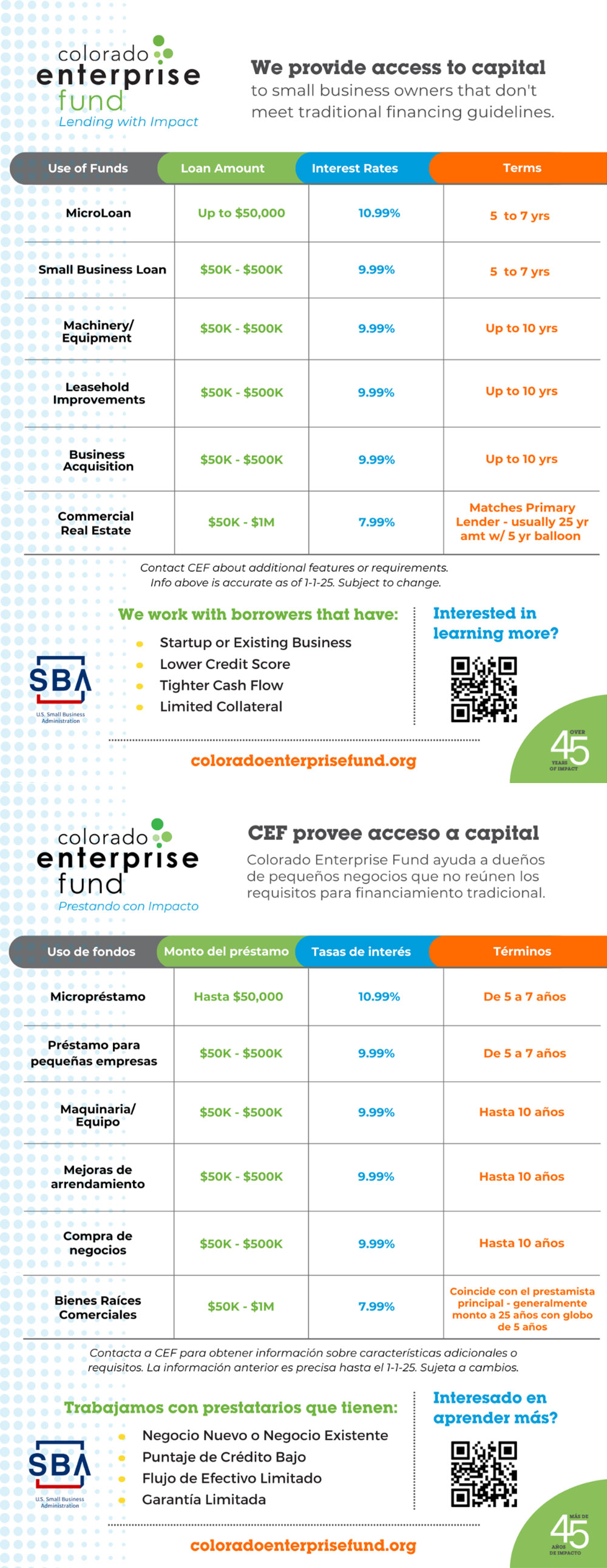
We provide access to capital for
CEF is a nonprofit CDFI small business lender creating impact for underserved Colorado entrepreneurs and communities. We provide access to capital for small businesses that don’t qualify for traditional financing guidelines.
CEF helps small businesses that don’t meet traditional financing guidelines with loans up to $1M including SBA 7(a) & micro loans.
We can usually work with borrowers who have:
Lower credit score
Tighter cash flow
A start-up business
Limited Collateral
Lending with Impact
CEF is dedicated to building businesses, driving economic development, and creating jobs.










